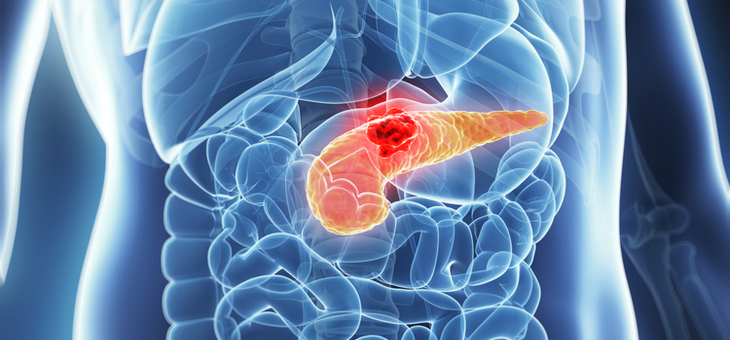Of the many types of cancer, one that receives less public attention than most, is pancreatic cancer. Which is somewhat surprising, given that by the end of the next decade, health professionals predict that pancreatic cancer will be the second leading cause of cancer-related deaths.
The other disturbing news is that pancreatic cancer has the highest mortality rate, with two-thirds of patients dying within 12 months of diagnosis.
And despite almost daily medical breakthroughs, the survival rate hasn’t changed significantly in recent years.
The lifetime risk of pancreatic cancer, according to WebMD is about 1 in 65.
Read: Blood test could spare cancer patients from unnecessary chemotherapy
The pancreas is a gland in the digestive system, in the back of the abdomen behind the stomach. It has two major roles – to make digestive juices (enzymes) that help the intestines break down food and to produce hormones, including insulin, that regulate the body’s use of sugars and starches. The pancreas is joined to the bowel by a duct and it is in the cells lining this duct that the cancer first appears.
So how to recognise pancreatic cancer?
Signs and symptoms may not appear until the cancer is advanced and has spread to nearby organs, which is why it is often called the ‘silent disease’. Keep an eye out for dark urine, sudden weight loss, upper abdominal or back pain, loss of appetite, jaundice, nausea and either diarrhoea or constipation.
If any of these symptoms has you worried, talk to your doctor.
Read: Doctors obliterate cancer in new clinical trial
So are you in the demographic for pancreatic cancer and what can you do to improve your chances of not getting it?
About 80 per cent of cases occur in people aged between 60 and 80. There are also strong genetic links, and a recent study revealed that around 30 per cent of cases were linked to smoking.
Excessive drinking and eating too much red meat have indirect consequences. Controlling both improves your chances of not contracting pancreatic cancer, as does eating vegetables.
Excessive weight has been linked to around 10 per cent of pancreatic cancer cases, while sufferers of type 2 diabetes are also at increased risk.
Read: University study links thyroid cancer risk to obesity
So is there any good news if you are diagnosed with pancreatic cancer?
The usual forms of cancer treatment are available – surgery, chemotherapy and radiotherapy – and survival rates in recent decades have improved. WebMD reports that newer drugs on the market have the ability to attack specific parts of the cancer cells and immunotherapy is being researched.
However, the disease is still considered difficult to cure as detection often occurs only after the cancer has spread to other organs.
Do you know someone who has been diagnosed with pancreatic cancer? Were you aware of the symptoms?
If you enjoy our content, don’t keep it to yourself. Share our free eNews with your friends and encourage them to sign up.
Disclaimer: This article contains general information about health issues and is not advice. For health advice, consult your medical practitioner.

